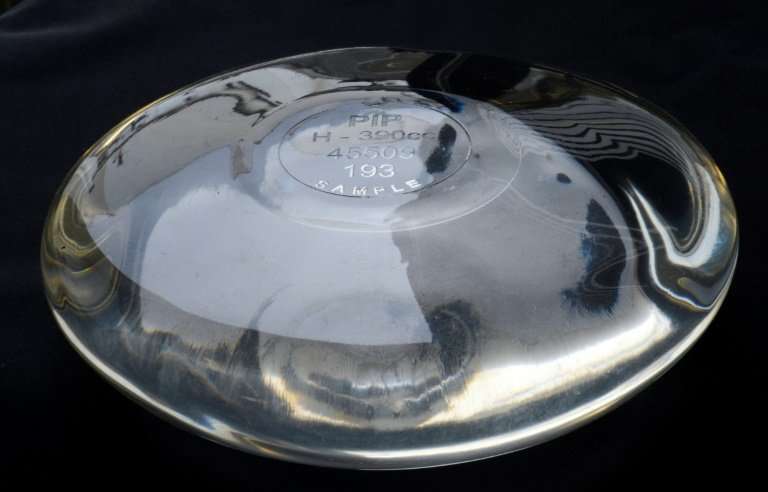In the far-reaching health scandal which emerged in 2010, breast implants made by the French firm Poly Implant Prothese were found to be made with industrial-grade silicone gel, cheaper and more dangerous to women than medical-grade silicone
A French appeals court on Wednesday ordered a retrial for a German safety certifier accused of negligence after approving breast implants which were later found to be susceptible to rupturing.
In the far-reaching health scandal which emerged in 2010, implants from the French firm Poly Implant Prothese (PIP) were found to be made with industrial-grade silicone gel, cheaper and more dangerous to women than medical-grade silicone.
The certifier, TUV Rheinland, was originally cleared of any liability by a court in the southern city of Aix-en-Provence in July 2015.
But on Wednesday the Court of Cassation, France's highest for determining the correct application of laws, said TUV had "an obligation of vigilance" with regards to products it certifies.
It noted in particular that TUV was responsible for "testing the breast implants and checking the producer's documentation on purchases of supplies".
After a separate trial the company had already been ordered to pay 60 million euros ($69 million) as a deposit for potential compensation for 20,000 women who received the defective implants.
"This is a big victory," said Patrice Spinosi, one of the lawyers representing an association of some 600 Venezuelan women.
"It would not be normal that these victims could not hold responsible those who certified the products going into their bodies and which were clearly defective," he said.
TUV said after the ruling that "the fraud committed by PIP was undetectable.
"We are confident that the courts will continue to determine an absence of liability for TUV Rheinland companies in the PIP scandal," it said in a statement.
PIP's founder, Jean-Claude Mas, was sentenced to four years in prison for fraud, and his company shut down in 2010.
© 2018 AFP



















